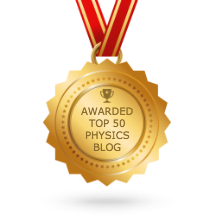One example that is closely related to a topic in IPMB is addressed in the July 2014 point/counterpoint article, which debates the proposition that “low-dose radiation is beneficial, not harmful.” Mohan Doss argues for the proposition, and Mark Little argues against it. The issue is central to the “linear no threshold” model of radiation risk that Russ Hobbie and I discuss in Sec. 16.13 (The Risk of Radiation) of IPMB. Mohan Doss leads off with this claim:
When free radical production is increased, e.g., from low-dose radiation (LDR) exposure (or increased physical/mental activity), our body responds with increased defenses consisting of increased antioxidants, DNA repair enzymes, immune system response, etc. referred to as adaptive protection. With enhanced protection, there would be reduced cumulative damage in the long term and reduced diseases. The disease-preventive effects of increased physical/mental activities are well known.Little responds:
Dr. Doss discusses the well-known involvement of the immune system in cancer, and more generally the role of adaptive response. The critical issue is whether the up-regulation of the immune system or other forms of adaptive response that may result from a radiation dose offsets the undoubted carcinogenic damage that is caused. The available evidence, summarized in my Opening Statement, is that it does not.Both cite the literature extensively. I find it fascinating that such a basic hypothesis hasn’t, to this day, been resolved. We don’t even know the sign of the effect: is low dose radiation positive or negative for our health. Although I can’t tell you who is right, Doss or Little, I can tell you who wins: the reader. And especially the student, who gets a front-row seat at a cutting-edge scientific debate between two world-class experts.
By the way, point/counterpoint articles aren’t the only articles available free-of-charge at the Medical Physics website. You can get 50th Anniversary Papers [for its 50th anniversary, Medical Physics published several retrospective papers], Vision 20/20 papers [summaries of state-of-the-art developments in medical physics], award papers, special focus papers, and more. And it’s all free.
I love free stuff.



No comments:
Post a Comment